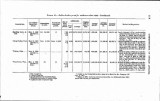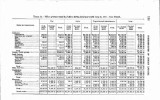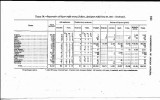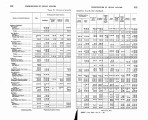| Title |
Annual Report of the Commissioner of Indian Affairs - 1911 |
| Subject |
Indian reservations; Federal government; Indians of North America; Maps; Work; Land use; Allotment of land; Treaties; Agriculture; Timber; Health; Indians of North America--Social life and customs; Water rights; Natural resources; Livestock; Grazing; Food; Irrigation; Education; Indians of North America--Education; Employment (Economic theory); Courts; Hunting; Railroads; Travel; Crime; Indigenous peoples--North America |
| Keywords |
Annual Report; Indian Agency; Reservations; Land Rights; Indian; White Relations; Allotment; Resources; Mining; Trade; Native Americans |
| Publisher |
Digitized by J. Willard Marriott Library, University of Utah |
| Tribe |
Ute |
| Band |
Uintah |
| Language |
eng |
| Description |
Excerpts concerning Utah from the Annual Report of the Commissioner of Indian Affairs - Courtesy of the University of Wisconsin Digital Collections. Commissioner Valentine discusses sanitation initiatives, housing, livestock raising, land leases, mining operations, regulations regarding logging, the performance of agency employees, the distribution of funds alloted by Congress, etc. The Commissioner provides charts and statistical data pertaining to the aforementioned topics; those charts include data about Utah and Uintah Valley Indians |
| Type |
Text |
| Coverage |
Uintah and Ouray Indian Reservation (Utah); Utah; Washington (D.C.) |
| Format |
application/pdf |
| Rights |
Digital Image © 2011 America West Center. All Rights Reserved |
| ARK |
ark:/87278/s6fb7zm9 |
| Creator |
Commissioner of Indian Affairs; Valentine, Robert G. (Robert Grosvenor), 1872-1916 |
| Date |
1911 |
| Spatial Coverage |
Uintah and Ouray Indian Reservation (Utah); Washington (D.C.); Utah |
| Setname |
uaida_main |
| ID |
375885 |
| Reference URL |
https://collections.lib.utah.edu/ark:/87278/s6fb7zm9 |















































































































































































































































































































































